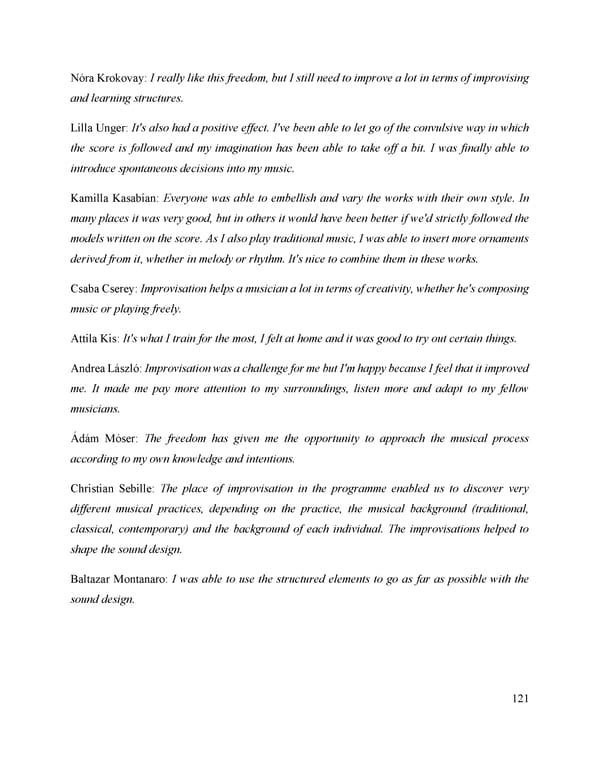Nóra Krokovay: I really like this freedom, but I still need to improve a lot in terms of improvising and learning structures. Lilla Unger: It's also had a positive effect. I've been able to let go of the convulsive way in which the score is followed and my imagination has been able to take off a bit. I was finally able to introduce spontaneous decisions into my music. Kamilla Kasabian: Everyone was able to embellish and vary the works with their own style. In many places it was very good, but in others it would have been better if we'd strictly followed the models written on the score. As I also play traditional music, I was able to insert more ornaments derived from it, whether in melody or rhythm. It's nice to combine them in these works. Csaba Cserey: Improvisation helps a musician a lot in terms of creativity, whether he's composing music or playing freely. Attila Kis: It's what I train for the most, I felt at home and it was good to try out certain things. Andrea László: Improvisation was a challenge for me but I'm happy because I feel that it improved me. It made me pay more attention to my surroundings, listen more and adapt to my fellow musicians. Ádám Móser: The freedom has given me the opportunity to approach the musical process according to my own knowledge and intentions. Christian Sebille: The place of improvisation in the programme enabled us to discover very different musical practices, depending on the practice, the musical background (traditional, classical, contemporary) and the background of each individual. The improvisations helped to shape the sound design. Baltazar Montanaro: I was able to use the structured elements to go as far as possible with the sound design. 121
 Lost Analogue: Exploring Film, Music, and Interdisciplinary Methods in Education Page 121 Page 123
Lost Analogue: Exploring Film, Music, and Interdisciplinary Methods in Education Page 121 Page 123